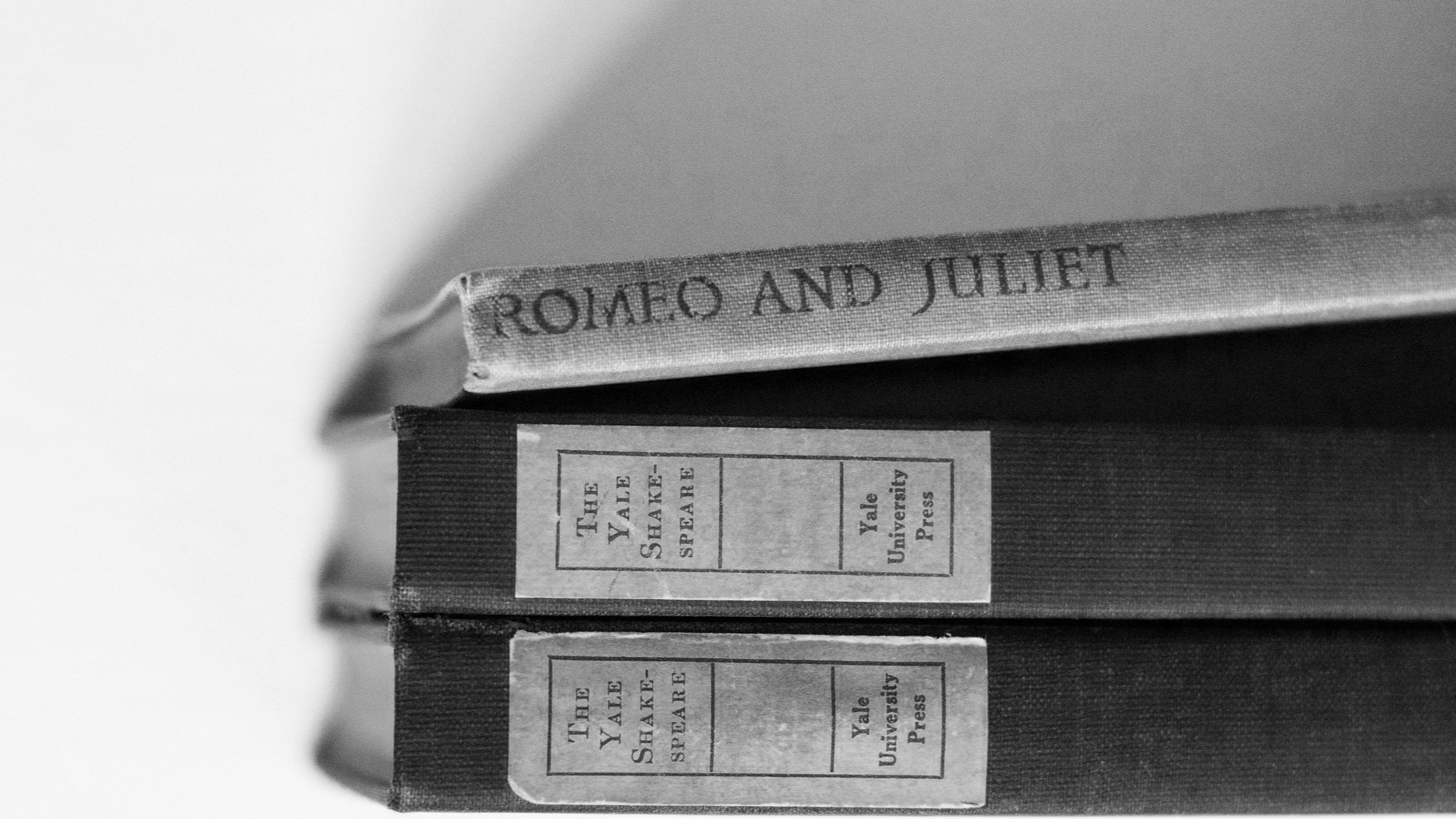Why We Still Need Shakespeare
By some accounts, William Shakespeare was a selfish, philandering, absentee husband and father. There are rumours that he didn’t really write the stuff we think he wrote, that he didn’t have the education required, and that he stole storylines like nobody’s business. Beyond the ad hominem stuff, his work is over four hundred years old and often seems like an impenetrable wall of snooty-patoot fancy talk that doesn’t apply to the 21st century.
It's at this point that I will stop trashing the bard and make the argument that we still need him, or at least his writing, in our lives.
I confess that I’m a huge Shakespeare nerd. I started reading his stuff at age 13, after asking for an anthology for my birthday (yup, I was that kid). I studied his plays in high school and university, lugging an enormous anthology with me across campus and taking flak from jocks and engineers. It’s never been a chore or a bore for me to sit through Shakespeare productions on stage or at the movies. I’ve got t-shirts, a bobblehead, stationery, and socks with his likeness. So yes, I’m biased.
I willingly admit that maybe Shakespeare doesn’t belong in school curricula anymore, at least not without a major overhaul of how his works are taught (was anyone else forced to memorize soliloquies for no apparent reason?). You don’t need to study the bard to be literate or accomplished. If you’re going to dive into his portfolio, it shouldn’t be for academic prowess.
I’ll also admit that his language, his actual turn of phrase can be pretty daunting. English is one of those languages that looks profoundly different over the centuries. Adding to that, Shakespeare made a habit of inventing new words and expressions, so even readers of his own era were kept on their toes.
So, Shakespeare is neither widely desirable nor easily comprehensible, but I’m going to argue that we still need him, for the following reasons:
Shakespeare wrote during some tumultuous times, in the middle of political upheaval, the bubonic plague, witch burning, and persecution of varying sorts. For the love of Pete, there was a woman wearing the crown at the time, and females were still forbidden to appear on stage. It may have been the Renaissance, but it was not without its growing pains. Shakespeare worked while surrounded by all manner of heartbreak and strife, and here we are, doing the same. That alone could be aspirational for us.
Don’t come at me, but I really think it’s okay to challenge ourselves a little, linguistically. Unpacking Shakespeare’s text requires patience and perseverance, neither of which are bad things to practice in the midst of our “right now.” Yes, we can still read hard things, long-form things with big words. There are mental muscles we need to keep in shape.
Shakespeare’s audience was inclusive, at least as inclusive as a person could be at the time. Everyone went to the theatre. Stuff got shut down so they could. His audience saw themselves reflected in his plays, with respect to social class, level of education, gender, and yes, even ethnicity. He wrote for everyone, about everyone. There are notes to be taken about that.
Even after 400 years, there are so many opportunities to reinvent, reinterpret Shakespeare. It’s been done, on both stage and screen, by both seasoned professionals with formal training, and by dishy young heartthrobs. It’s good to be challenged artistically like this, to have opportunities to stretch out, whether you’re producing it or consuming the work.
In Shakespeare’s plays, the fool gets a fair bit of attention, as do underdogs and unlikely heroes. We the audience are encouraged to listen to the small, but still significant voices. The fool knows stuff. They’ve been watching from the periphery, left out of the major decisions, but free to see things with a critical eye, and speak with wit and insight. It’s time to start listening to marginalized voices in real life too.
When it comes to being a student of human nature, there aren’t many writers who are more engaged than Shakespeare. It’s all in there somewhere—the good, the bad, the hideous. There’s a level of honesty to his characters and his storylines. Humans in his plays are spiteful, proud, hasty, ludicrous, ambitious, and vengeful. They’re also resourceful, tenacious, hopeful, creative, loyal, and passionate. Sadly, not that much has changed over the past four centuries. That what nurtures us and what consumes us is relatively the same. We are not presently at a high point in history, and we’d do well to read his work as both a set of cautionary tales and something to which we might aspire.
I’ve long blathered on about the benefit and necessity of art, in good times, but especially in times of struggle. Here he is, the darling of Western literature, with 38 plays and 154 poems, all oozing with introspection on what it means to be a human being, with humour and empathy and ruthlessly honest critique. It’s thousands and thousands of pages of “Aha” moments. It’s royalty-free, widely available, and it may be a gateway into a whole lot of other creative, artsy stuff that might help us keep our wits about us.
If you can get your head around Shakespeare (I know, it’s not exactly a piece of cake), then maybe you’ll be brave and honest enough to explore more literature, past and present, along with more art, more music, more philosophy, more of everything that’s decidedly human. You can partake in any format of Shakespeare you like—a parody, a modern production, cheat notes, whatever suits. Just make sure it’s around somewhere, and that you take a minute or two to see it reflected in your own world. Even 400 years later, it’ll still do you good.
